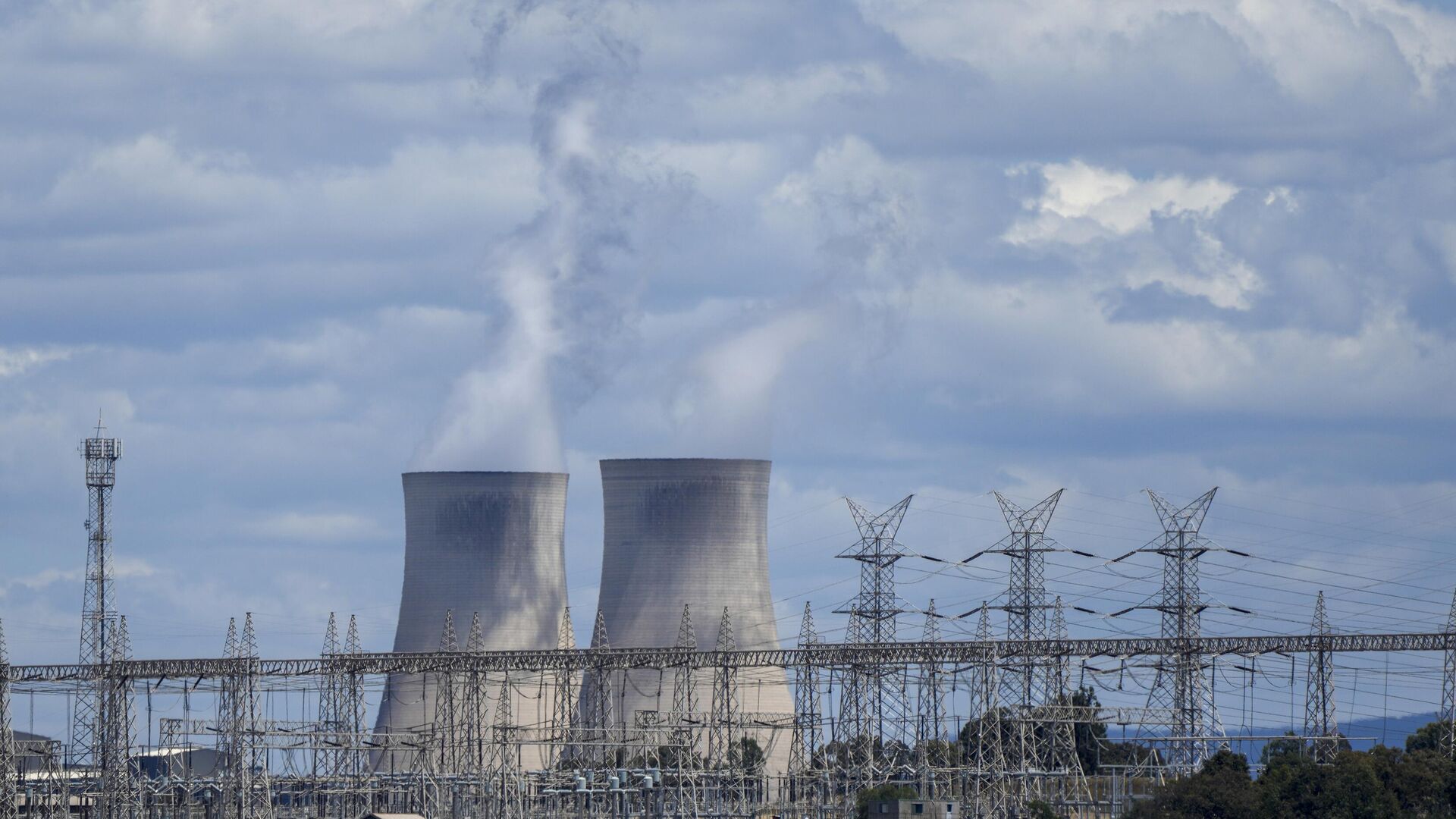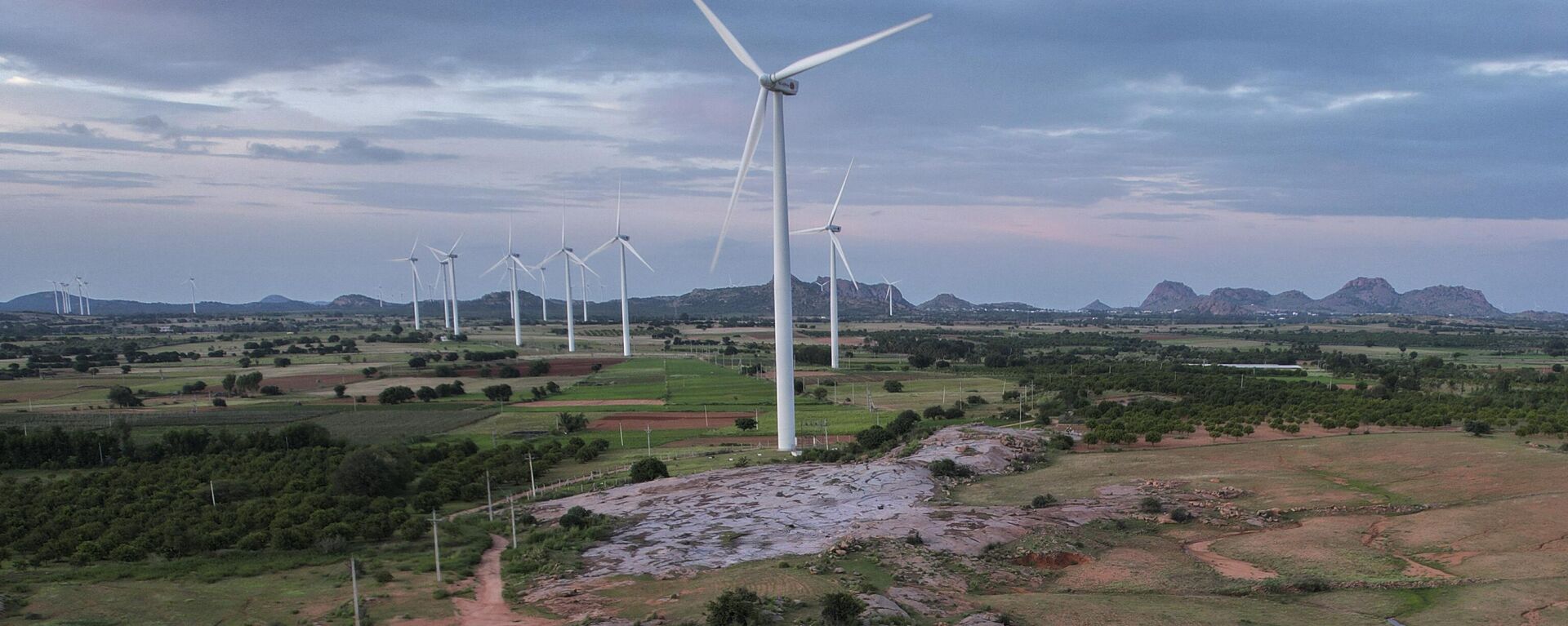https://sputniknews.in/20230905/australia-and-south-korea-top-coal-power-polluters-among-g-20-members-4052240.html
Australia and South Korea Top Coal Power Polluters Among G-20 Members
Australia and South Korea Top Coal Power Polluters Among G-20 Members
Sputnik India
Australia and South Korea remain the top two per capita coal power polluters per capita among the G20 members in 2022, new analysis by global energy think tank Ember reported on Tuesday.
2023-09-05T18:54+0530
2023-09-05T18:54+0530
2023-09-05T18:54+0530
australia
india
south korea
india g-20 presidency
coal production
g-20
united kingdom (uk)
us
climate change
energy security
https://cdn1.img.sputniknews.in/img/07e7/09/05/4057158_0:40:3318:1906_1920x0_80_0_0_9f97e76b73470f2112c749915d1050a6.jpg
Australia and South Korea continue to be the top two per capita coal polluters among the G-20 members in 2022, a new analysis by global energy think tank Ember reported on Tuesday.The two countries each emit triple the world average of 1.1 tonnes of carbon dioxide per capita.The report said that the shift to clean energy is not fast enough and coal emission still remains a pivotal issue. In 2022, 36% of global electricity was powered by coal which emitted 8.4 million tonnes of carbon dioxide emissions.Among the G20 nations, the United Kingdom saw the most significant decline in coal power emissions per capita over the last seven years, dropping by 93%, followed by France (-63%), Italy (-50%), and Brazil (-42%).Meanwhile, other G20 countries experienced a rise in per capita emissions in the past seven years, including Indonesia (+56%), Türkiye (+41%), China (+30%) and India (+29%), as a result of rapidly growing demand outpacing the growth in clean generation.“Australia is a world champion for all the wrong reasons. We’re not only the world’s third largest fossil fuel exporter, we’re first in the world when it comes to coal emissions per capita, and are becoming increasingly isolated globally in our reliance on coal," said the director of the Australia Institute of Climate.The report, which came days ahead of the G-20 Summit, argued that the leaders should drive global actions to end fossil fuels and usher in an era of clean power.
https://sputniknews.in/20230709/global-south-has-to-create-space-for-itself-in-clean-energy-says-wri-expert-2868712.html
australia
india
south korea
united kingdom (uk)
us
Sputnik India
feedback.hindi@sputniknews.com
+74956456601
MIA „Rossiya Segodnya“
2023
Deexa Khanduri
https://cdn1.img.sputniknews.in/img/07e6/0c/13/138923_52:0:533:481_100x100_80_0_0_cadf23d341691fc65ff2b22fd1afe584.jpg
Deexa Khanduri
https://cdn1.img.sputniknews.in/img/07e6/0c/13/138923_52:0:533:481_100x100_80_0_0_cadf23d341691fc65ff2b22fd1afe584.jpg
News
en_IN
Sputnik India
feedback.hindi@sputniknews.com
+74956456601
MIA „Rossiya Segodnya“
Sputnik India
feedback.hindi@sputniknews.com
+74956456601
MIA „Rossiya Segodnya“
Deexa Khanduri
https://cdn1.img.sputniknews.in/img/07e6/0c/13/138923_52:0:533:481_100x100_80_0_0_cadf23d341691fc65ff2b22fd1afe584.jpg
australia and south korea, top two per capita coal power polluters , coal polluter, austraila coal, global energy think tank ember, coal emission, carbon dioxide emissions, united kingdom, coal power emissions, france, italy, brazil, two polluters, australia, south korea, coal emissions, clean power generation, indonesia, türkiye, china india, world’s big coal power polluters, renewable electricity, dave jones, climate targets, coal-fired power, clean power, cop28, adiya lolla
australia and south korea, top two per capita coal power polluters , coal polluter, austraila coal, global energy think tank ember, coal emission, carbon dioxide emissions, united kingdom, coal power emissions, france, italy, brazil, two polluters, australia, south korea, coal emissions, clean power generation, indonesia, türkiye, china india, world’s big coal power polluters, renewable electricity, dave jones, climate targets, coal-fired power, clean power, cop28, adiya lolla
Australia and South Korea Top Coal Power Polluters Among G-20 Members
Deexa Khanduri
Sputnik correspondent
Australia and South Korea, both emit over three times the global average and more than twice the G20 countries' average, surpassing even China, the US, and Japan.
Australia and South Korea continue to be the top two per capita coal polluters among the G-20 members in 2022, a new analysis by global energy think tank Ember reported on Tuesday.
The two countries each emit triple the world average of 1.1 tonnes of
carbon dioxide per capita.
The report said that the shift to clean energy is not fast enough and coal emission still remains a pivotal issue. In 2022, 36% of global electricity was powered by coal which emitted 8.4 million tonnes of carbon dioxide emissions.
Among the G20 nations, the
United Kingdom saw the most significant decline in
coal power emissions per capita over the last seven years, dropping by 93%, followed by
France (-63%),
Italy (-50%), and
Brazil (-42%).
The top two polluters, Australia and South Korea, also had their per capita coal emissions fall by 26% and 10%, respectively, since 2015 as a result of growing clean power generation.
Meanwhile, other G20 countries experienced a rise in per capita emissions in the past seven years, including
Indonesia (+56%), Türkiye (+41%), China (+30%) and India (+29%), as a result of rapidly growing demand outpacing the growth in clean generation.
“China and India are often blamed as the world’s big coal power polluters. But South Korea and Australia were the worst polluters still in 2022. As mature economies, they should be scaling up renewable electricity ambitiously and confidently enough to enable coal to be phased out by 2030,” Ember’s Global Insights Lead Dave Jones stated.
“Australia is a world champion for all the wrong reasons. We’re not only the world’s third largest fossil fuel exporter, we’re first in the world when it comes to
coal emissions per capita, and are becoming increasingly isolated globally in our reliance on coal," said the director of the Australia Institute of Climate.
"Even as Australia’s latest emissions data shows just how much work there is to do to meet our climate targets, the conversation is not about a rapid transition away from coal-fired power. It’s about how to delay the closure of our coal power stations further,” the director further added.
The report, which came days ahead of the G-20 Summit, argued that the leaders should drive global actions to end fossil fuels and usher in an era of clean power.
“India, as the host of the G-20 summit, has the opportunity to assume climate leadership in the G-20 and hold the bloc accountable. India’s plans to ramp up renewable energy seem to align well with the COP28 president’s call for tripling renewables by 2030. India’s early backing to this call can not only influence the G-20 into action but also ensure that the developed countries bring their per capita emissions down,” Ember’s Asia Programme Lead Aditya Lolla said.



